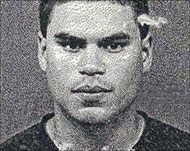US lawyers seek domestic spying link
Lawyers for an Islamic scholar and a Lebanese-born Palestinian computer programmer want US federal judges to determine whether evidence used against their clients was gathered by a secret domestic spying programme.

Jonathan Turley, a George Washington University law professor, said on Wednesday that there “seems to be a great likelihood” that Ali al-Timimi, a suburban Washington Islamic cleric convicted for exhorting followers after the 11 September 2001 attacks to wage war against US troops overseas, was “subject to this operation”.
Attorney Kenneth Swartz said he wants to know whether any evidence was gathered by the National Security Agency (NSA)without a warrant and used to convince a secret court to authorise six years of wiretaps of his client, Adham Amin Hassoun, who lives in Florida.
Last month, Hassoun and Jose Padilla, a US citizen held for nearly four years as an “enemy combatant”, were charged with raising money to support Islamic fighters outside the United States.
Intelligence surveillance
George Bush, the US president, has acknowledged that within days of the September 11 attacks, he authorised the NSA to conduct warrantless intercepts of conversations between people in the United States and others abroad who had suspected ties to al-Qaida or its affiliates.
 |
|
Jose Padilla has been held as an |
In doing so, the administration bypassed the nearly 30-year-old secret Foreign Intelligence Surveillance Act (Fisa) court established to oversee the government’s handling of espionage and terrorism investigations.
Turley has appealed the case to the 4th US Circuit Court of Appeals, asking that al-Timimi’s conviction and life sentence be overturned.
Turley argued that the prosecution was a violation of al-Timimi’s free speech rights. His conviction was based on statements he made at a dinner days after the September 11 attacks at which he urged several young Muslim men to join the Taliban and fight US troops overseas.
Al-Timimi’s lawyer said he recently has contacted federal prosecutors in Alexandria, Virginia, where a jury convicted al-Timimi in April, seeking their co-operation in asking the appeals court to return the case to US District Judge Leonie Brinkema. She presided over al-Timimi’s month-long trial.
Brinkema could determine whether NSA-gathered evidence was used against al-Timimi, without the court being told, Turley said.
She also could press the government to reveal whether it withheld evidence gathered by the NSA that could have helped al-Timimi’s defence, he said.
If prosecutors decline to go along, Turley said, he will file a request next week asking the appeals court to send the case back to Brinkema.
Origin of evidence
Prosecutors probably did not know about the domestic spying programme, Turley said. “It’s possible that prosecutors had no idea of the origin of this evidence.”
In Hassoun’s case, the Fisa court was not bypassed. The secret court approved wiretaps of Hassoun from 1994 to 2000, attorney Swartz said.
Before the NSA spying programme’s existence was revealed, Swartz said, he had planned to challenge the legality of the Fisa wiretaps.
He said his challenge, to be filed in the next week or two, also will ask a federal judge in Miami to determine whether the Fisa court was misled with evidence that it had not been told had been gathered secretly by the NSA.
Trent Duffy, a White House spokesman, said on Wednesday that the administration would not comment on pending cases.
“I don’t think it should serve as any surprise that defence attorneys are looking for ways to represent their clients,” he said. “That’s what defence attorneys do.”